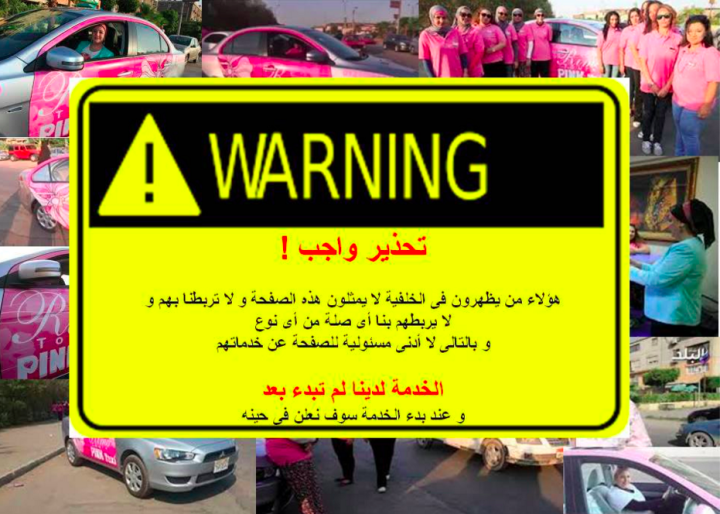
Citing multiple instances of assault that have taken place in male-driven taxis, Reem Fawzi, Pink Taxi’s founder, says that it’s becoming increasingly clear that “we need a transport service for Egyptian women. Not only for them, in fact: for all Arab women and foreigners — women in general.” To keep both passengers and drivers safe, all rides are pre-ordered, and passengers must send in a photo of their ID beforehand.
Not only is the taxi service meant for women, but it only has female employees. Fawzi hired 50 women to drive 20 pink cars, and donned them all in pink to celebrate their femininity, something that is often hidden for safety’s sake. But Fawzi is fiercely aware of her identity (and the dangers that come with it), and backing down from a challenge is not an option for her.
While many women in Egypt don’t know how to drive (it’s still illegal for females to operate cars in Saudi Arabia), Fawzi trains her employees well, and ensures that they are all equipped with a university degree and speak English. And while the drivers admit that they are frequently harassed by other men in their profession, for many, it simply seems like a catalyst to work even harder. “Men see us as dolls,” says 36-year-old Heba, one of Pink Taxi’s drivers, “We have to stand up to them.”
Still, there are those who have taken issue with Fawzi’s marketing and branding choices. “Pink Taxi and segregation in general says [to women]: ‘Harassment is inevitable. Here is how you can adapt [to it]’,” Dalia Abdel-Hameed, head of the gender program at the Egyptian Initiative for Personal Rights, told The Guardian. And given the high prices of each ride (between 35 and 210 Egyptian pounds in a country where minimum wage is just 1,200 pounds a month), some are concerned that the women who are most in need of this service simply don’t have the means to access it.
But despite its imperfections, at the very least, it’s a valiant attempt at empowerment. And that in and of itself seems to deserve some sort of recognition.


